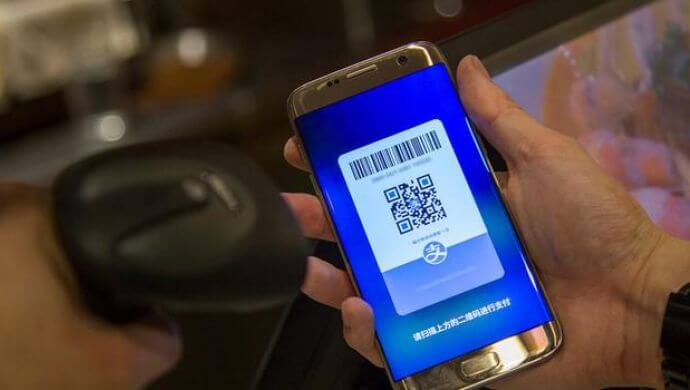It’s a colossal surprise to learn the technology was banned in the first place, as every merchant seems to be using it unhindered

China issued the draft of a new law that will legalise payment through QR codes last week, ending a two-year ban on the technology. For those living China-side, it’s a colossal surprise to learn the technology was banned in the first place, as every merchant from 7/11 to the local coffee vendor seems to be using QR codes unhindered.
China’s central bank issued a law in March 2014 to stop payments made by scanning QR codes with mobile devices. China’s ‘virtual credit cards’, which also use QR codes, were also banned at the time due to security concerns. The regulations came into play just days after Tencent’s WeChat Payment and Alibaba’s Alipay released their virtual credit cards services.
While the authority cited security concerns as the reason for the decision, critics believe the move was not totally impartial. State-backed China UnionPay is losing huge amount on transaction fees to mobile payment transactions made through QR codes as customers are shifting to the more convenient third-party platforms like Alipay and WeChat Payment. The move was widely considered as a protective countermeasure to help the state-controlled bankcard association.
Also Read: Didi Chuxing, Uber are now legal in China
Like many other industries such as car-hailing and game console, QR payment thrived despite it’s in a regulatory gray zone. It’s interesting to note that the government implemented the ban loosely enough to allow monumental growth in the sector. QR codes have yet to take off in the Western markets, but they are ubiquitous in China, used across all major platforms in e-commerce, ride-hailing and even peer-to-peer payments.
The widespread adoption and technological improvement have pushed the legalisation of QR technology. A number of commercial banks are even jumping on the bandwagon. State-backed Industry and Commercial Bank of China just released a similar feature this month to facilitate mobile payment. China UnionPay is also developing its own QR code payment service in an attempt to regain the lost ground.
It still unclear when the rule will take effect and the current draft is soliciting public opinions.
—
The article China Runs On QR Codes Even Though They’re Illegal – But Not For Long first appeared on Technode.
The post China runs on QR codes even though they’re illegal –but not for long appeared first on e27.